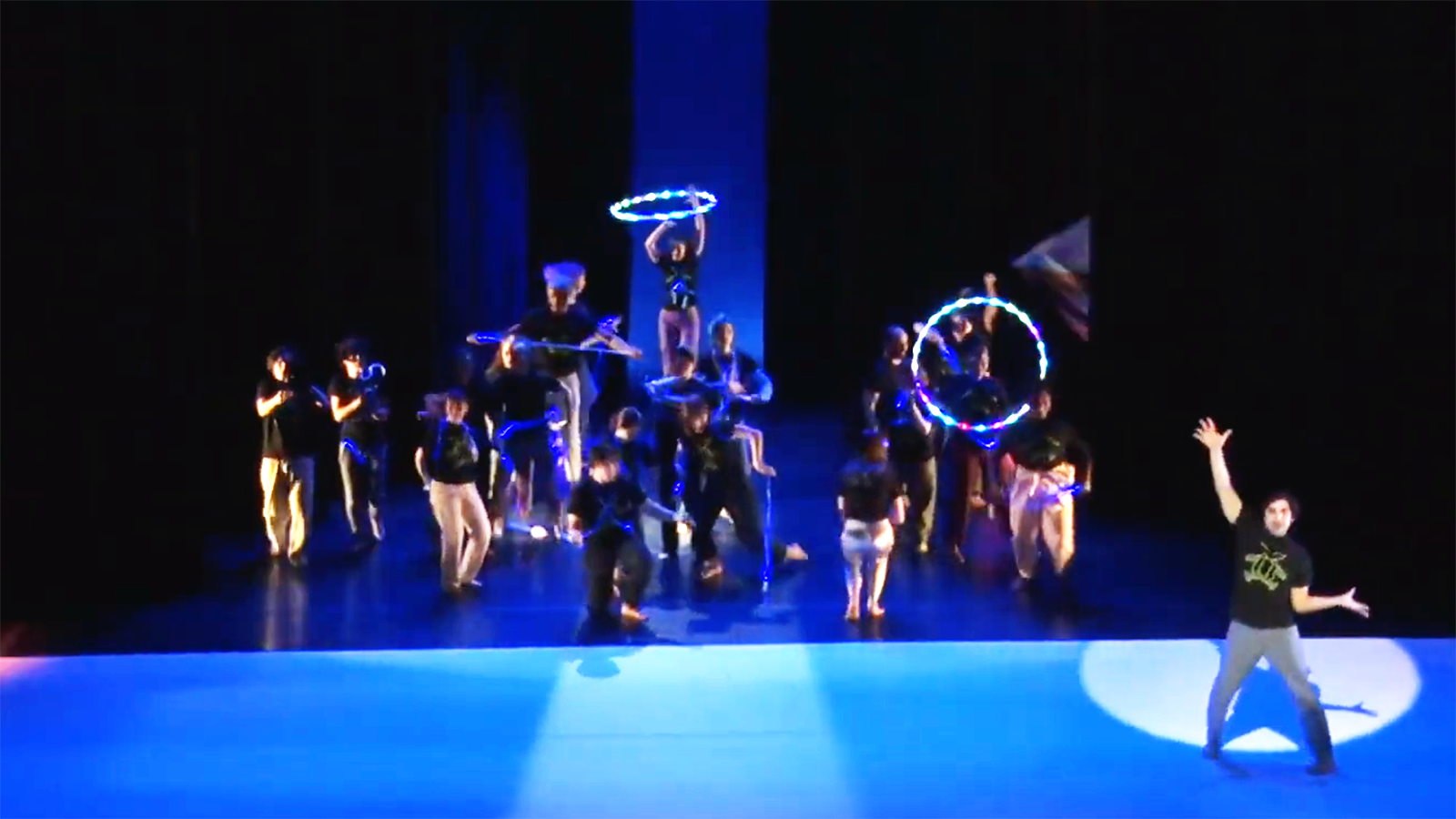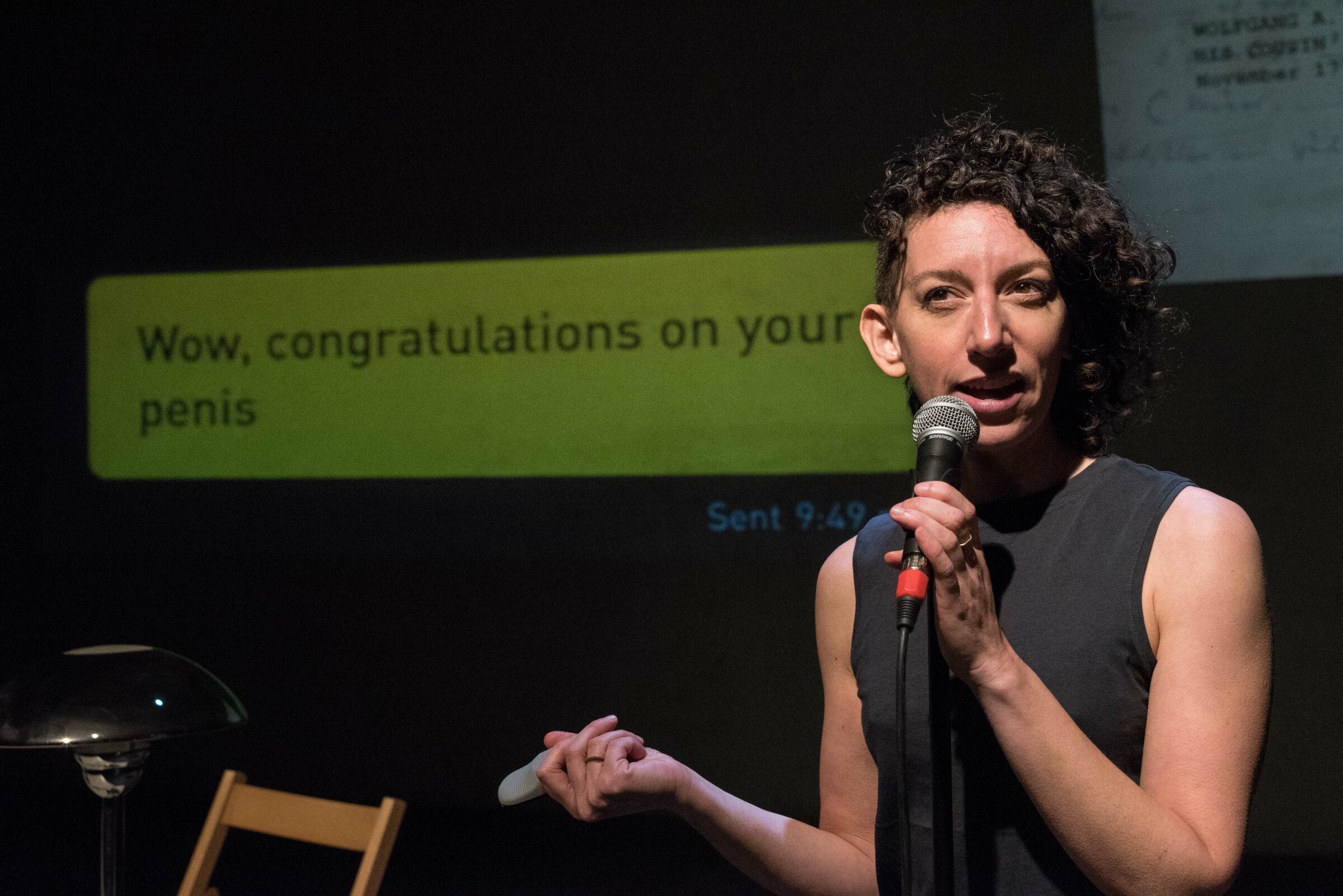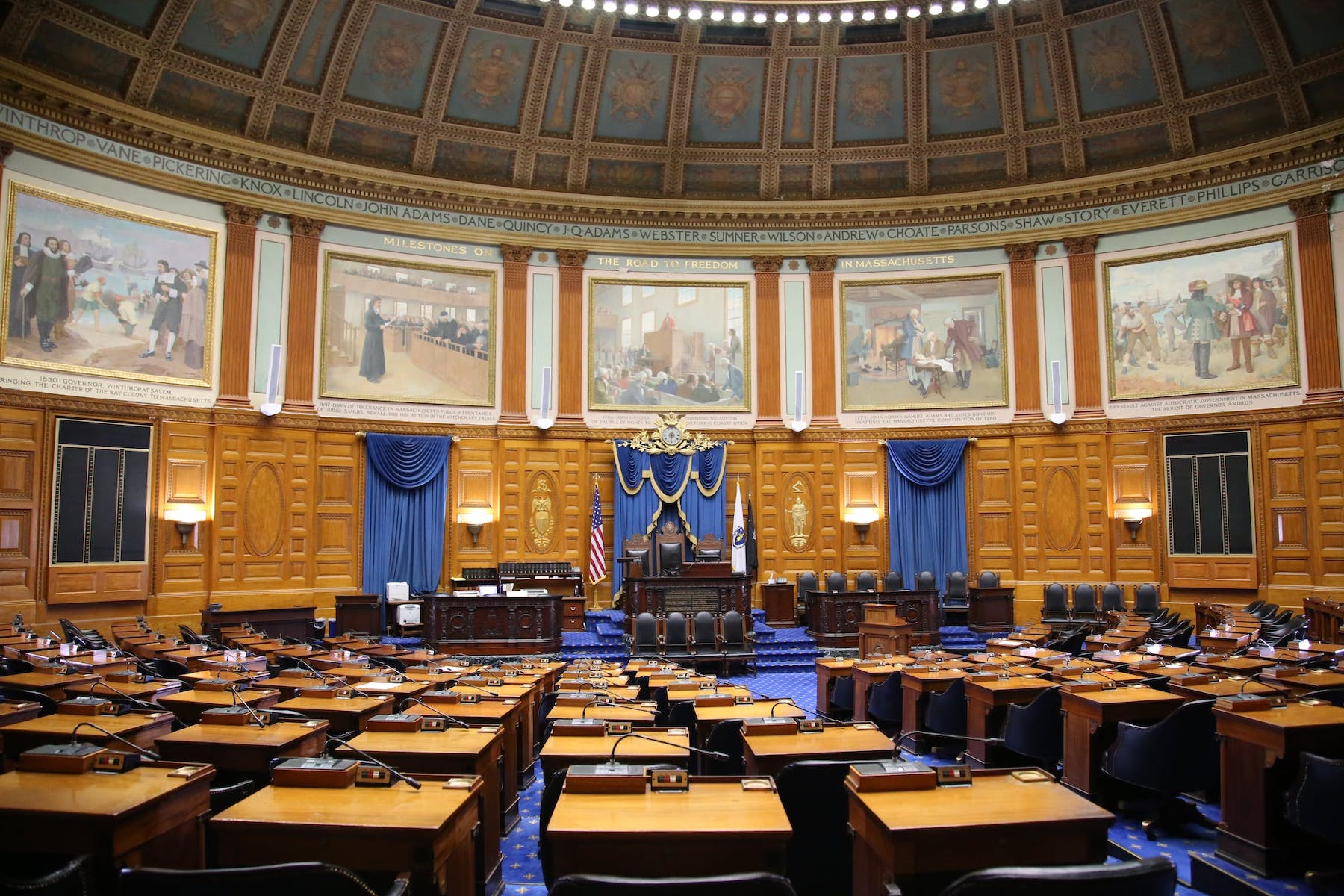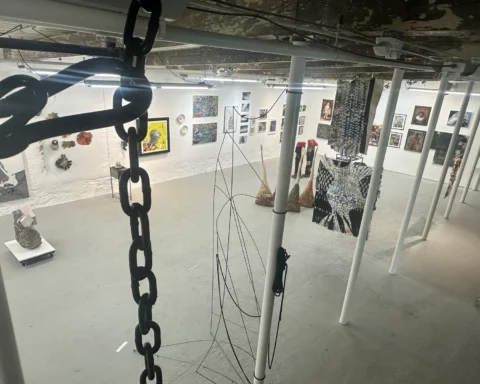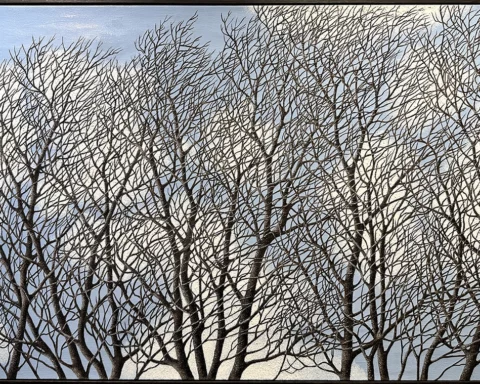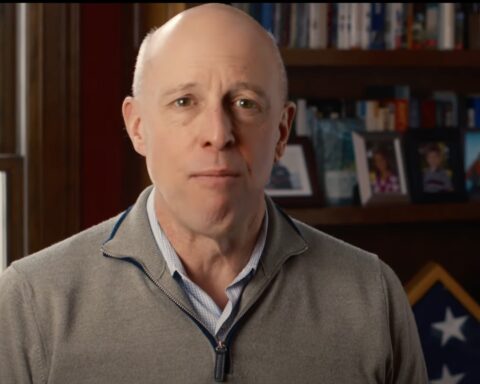Podcast (top-left-corner): Play in new window | Download
UPDATE! This show is looking for members of the community to participate on stage— no performance experience required. Contact Alexander Davis to be a part of the magic!
From the website of the ’62 Center for Theatre and Dance:
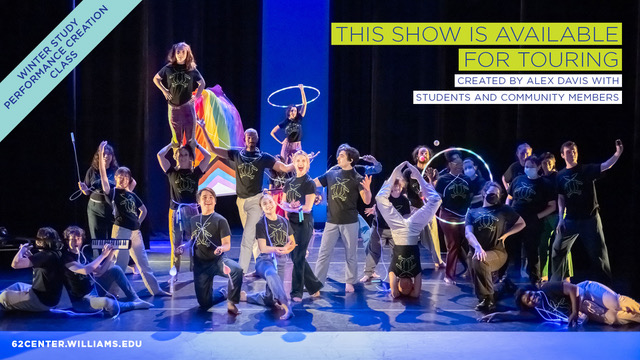
Boston-based Alex Davis‘ This Show is available for Touring, presents a comedic solo (with twelve backup dancers) that features the collaborative contributions of students and community members. Davis’ performances illuminate the innate theatricality of everyday life, drawing from pop culture, memes, reality television, improvisational techniques, community building, and lists. There is a post-performance Q&A on February 10th.
This Show Is Available for Touring
Friday, February 9th – Saturday, February 10th
8:00 p.m. – 9:00 p.m.
Adams Memorial Theatre, ’62 Center for Theatre and Dance
$3 – $10
The Queering Perspectives Festival interrogates conventional, culturally normative performance. We want to create a platform for the othered, experimental, and subversive, pushing the boundaries of their form in pursuit of new research and artistic production. QPF has the agenda of sparking new conversations about performance on campus. We want performance to be a springboard for conversation into sexualities, genders, bodies, races, ethnicities, abilities, and desires.
Alexander Davis
Editor’s Note: Below is something very close to a verbatim transcript of the recent conversation with our guest. If you follow along with the text as you listen, you will discover that you are NOT reading a word for word record of the discussion. We know this. We think you’ll approve of the reason why.
We use Artificial Intelligence first to process the audio from the recording to create a transcript that’s about 85 – 95 percent accurate. The problem with that level of accuracy is that it also captures most of the “uhs” and “ums.” It also doesn’t remove all the false starts or other kinds of word salad we humans pass off as communication every day.
Then we run it through Chat GPT4 to remove all those vocalized pauses and verbal detritus. I have refined the AI prompt to the point where the result is what people hope they sound like, without too noticeably changing the actual language used, other than to get rid of what nobody would be able to understand were it written out anyway. Next, I go through the transcript line by line anyway and decide what bits really need an edit, so the process does spare my arthritic hands a bit, but is still quite time-consuming.
Back in the dark ages, digital recorders were big bulky things most of us lowly reporters couldn’t afford. Speech-to-text transcription was something even the intelligence community coveted. We used reporters notebooks (I still always carry one) and a ball point pen (I don’t always remember to steal enough from the bank to keep my car stocked), and what we typed up in the articles that got published were quotes as accurate as our penmanship (or shorthand) allowed. Politicians and business leaders told us, “Make sure you make me sound good,” and if you didn’t at least try not to make them look like idiots you could count on interviews with them months later. You certainly didn’t stick in a bunch of “wells..” and “you knows.” That would be a waste of everyone’s time. In truth, most printed interviews were just close approximations of conversations, at best.
So why does any of this matter? Firstly — transparency. We want you to know how closely we hew to reality, how well we mirror the actual events and statements that matter. Also, we want you to be educated about how the sausage is made. When you know what goes into the final product you enjoy reading or listening to, we think you’ll be in a better position to value our work properly. Thirdly, we’re also kind of geeks and like to brag about how much tech we throw at our work. If you have any questions or comments about this, or any of our editorial policies, please e-mail us at greylockglass@protonmail.com.
Top Left Corner: Alexander Davis. It is so good having you on the top left corner. Welcome.
Alexander Davis: Thank you so much for having me. I’m so happy to be here.
Top Left Corner: Yeah. It’s a wonderful thing to be located in an area with so much arts content, so much diversity in the arts. And the 62 Center, which is in the midst of the Queering Perspectives Festival, is really a good representative of that, maybe even the local champion of diversity in the arts. I want to talk about your show that’s coming up, which is this show is available for touring on February 9th and 10th. But first, I want to hear a bit about Alexander Davis and the Davis sisters.
Alexander Davis: Yeah, I’m happy to talk about it. Thanks again for having me. My name is Alexander Davis. I use he/him or they pronouns, or Alex is also fine. I’m a Boston-based artist, primarily, but I’m not unfamiliar with the Berkshires. I’m an alumni, a very proud alumni of Jacob’s Pillow and the school of Jacob’s Pillow. I’ve also just finished up my MFA at Smith College. So the western side of the state has definitely felt like a second home to me. Whenever I get the chance to come out here and show work, and connect with other artists, it’s always a joy. I’m primarily a dancer, performer, choreographer, and theater maker. Most of the time, I do that through a company called the Davis Sisters, a duet project in full collaboration with my best friend and soulmate, Joi Davis, who is one of the greatest people in the world. And anyone who’s met her would agree. She is with me in everything I do, even if it’s not a Davis Sisters project. This project, in particular, is a manifestation of my research and time at Smith College, getting my MFA. The work that I’m going to be presenting on February 9th and 10th is a furthering of work that I was making while in Northampton, Massachusetts. So it was born in Western Mass and is continuing to have a life out here.
Top Left Corner: Yeah, Northampton is a funky place. I love the five colleges area, not just for the funkiness, but what it represents. It’s a bastion of collective effort. For those who don’t know, if you’re a student at any of the five colleges — and I’m going to see if I can get them right — it’s UMass, Smith, Amherst, Hampshire College, and Mount Holyoke — you can take classes at any of them. That’s something special.
Alexander Davis: That’s it. Ding ding.
Top Left Corner: Ding bam. I win the $60,000 question. Nice. So, those five colleges, if you’re a student at any of them, you can take classes at any of them, which is fantastic.
Alexander Davis: And beyond that, the dance departments are a consortium, more connected than the traditional five college model. The dance departments share resources, faculty, and are connected by an organization called Five College Dance. So the five college consortium feels extra strong in the world of dance.
Top Left Corner: I had not realized that.
Alexander Davis: I think the only other department that is connected that way is astronomy.
Top Left Corner: Maybe you should do something based on astronomy. That way you can get all of you together. I’d love that.
Alexander Davis: Joy Davis, the other Davis sister, is a huge astronomy and astrophysics person. In addition to the work we make together, we do make work separately. I still very much feel her voice and her presence, often in the work I make outside of the Davis sisters and vice versa. She has a beautiful collection of works that are very astronomical.
Top Left Corner: I can see it. In fact, if you send me a link to any work she’s got online, I’ll happily put it in the links mentioned in the show notes. Choreographed by the stars, I like it. Let’s talk a little bit about the origins of the show. Now, I noticed that here at Williams, it is entitled “This Show is Available for Touring.” What I saw online on YouTube, it was “This Dance is Available for Touring.” How did it start out, and what was the intent of it? What were you trying to get across, and how has it evolved?
Alexander Davis: Yeah, the title did shift a little bit as I transferred it. Part of that was opening up the perception of what performance is. When I originally did it at Smith College, it was presented as my thesis for my MFA in dance. It was important to contextualize it as dance. I generally think my work is more successful when people go into it expecting dance, and then I can play with and subvert their assumptions. Randy Randall, the producer at the 62 Center who’s so generously connected us and is presenting this work, and I had a lot of conversations about whether it’s a show or dance. In the end, we went with ‘show’ just because when sourcing community members, as I’m sure we’ll get to, there are community members who are part of and perform in the work alongside myself and a few other core professional dancers. ‘Show’ felt potentially more accessible to people. If people heard about the opportunity to participate in a dance, some might count themselves out, thinking dance is this big revered, untouchable, inaccessible thing. I was experimenting and hoping that the word ‘show’ would maybe bring in musicians, theater artists, jugglers, or people who otherwise wouldn’t want to be part of a dance process.
Top Left Corner: I love that analogy, especially of easing yourself slowly into a cold pool. It makes it very visceral. But as we all know, eventually, you ease into a cold pool or pond, and before you know it, you don’t notice the temperature. You’re just having a good time moving, flowing. What was the hope that you had? What did you want to project, create with this? What do you want the audience to take away from this?
Alexander Davis: “This Show is Available for Touring” is literally a show that’s available for touring. It has several aims, but one of them is to really implicate the audience as an active part of not only a show’s aesthetic success but also its cultural and economic success. During the lockdowns, everybody turned to Netflix, television, streaming services, art, literature, arts and crafts, movement practices like yoga in their living rooms, and meditating for the first time. There was just this instinctual turn in this moment of tragedy and trauma collectively towards these cultural and embodied experiences. It’s important for folks to remember that art isn’t something you’re just passively engaged in, even if you’re not actively on stage performing it. You are actively implicated as a member of a community, whether that’s choosing to attend or not, how you cast your vote at the ballot box, how and where you choose to spend your money. Conscious consumerism is such a thing right now. People think about shopping small and buying from businesses that share their value systems. We can take that thought process one step further into how we integrate the arts into our lives, because everybody is integrating the arts. Some people are just doing it more passively than others.
Top Left Corner: I agree, and I want to go back a little bit to what you had said earlier about how every bit of movement can be stylized. I think it was either 2017 or 2018 that William’s dance department created a performance based on the movements of the food service staff members, right? Yes, yes, Forklift. Good memory. And that was an amazing illustration of just that because when we work physically with our bodies, with our hands, sometimes just to make the time go by, we add a little flair, a little panache to even mundane tasks. To keep our minds active and flexible, we sometimes add little flourishes here and there to what we do.
Alexander Davis: Absolutely. So, Forklift Danceworks, is a really wonderful company. And this piece, “Served” it was called, was coordinated by Allison Orr and Kristy Marty. And I think part of the success is not only bringing attention to the performers, in this case the dining hall workers, the cooks, showing that their movement has value and cultural implications, and that there’s artistry in their flourishes, but it’s also reminding the audience of something they might take for granted. I know I did as a college student. You take a dining hall for granted and then you get out of college and realize, right, someone made that food for me for four years. By elevating it in the eyes of the audience as well, we’re bringing a new kind of communal attention to something that might be forgotten.
Top Left Corner: No, you’re absolutely right. And I think that partly the occupations that we feel are okay to just sort of forget about are those whose movements are intentionally invisible to us. We pay attention to the movements of doctors, surgeons, because those movements are crucial. We pay attention to tree workers, watching them climb and hoping they don’t drop a tree on our house. That’s what we pay them not to do. But in other situations, we don’t think much about the movements that go into the job, which is really eight hours out of the day for someone working. These movements are intimately intertwined with the end result and the process. And, not sure if this is the best segue, but I did see the intro and finale of “This Dance is Available for Touring” on YouTube. If it’s okay, I’ll put a link to that as well. It appears that it’s being created and choreographed in real time, impromptu. Was that intentionally part of the process?
Alexander Davis: Absolutely. The piece itself is a pitch for its own existence, in a way. It spends its entire run, about 50 minutes, trying to justify why you’re watching it in the first place. That’s very much how I feel as a queer person right now in this country, swimming my way through academia. Within an academic setting, I often felt like I was trained to over explain and justify everything, which has its place. I’m grateful for the education and experiences. Yet, I feel like my identity as a queer person is something I’m constantly having to justify, sometimes literally just for existing. In the darker moments of this country, and we’ve got it pretty good compared to other parts of the world, I have to explain what I’m doing just for existing. I think that’s relatable not just to the LGBTQ+ community but to anybody who has held a marginalized identity or questioned why they’re doing something.
Top Left Corner: Well, this was a turn I was going to take very soon, and I’m glad you prompted me to make sure I do. Since this is part of the Queering Perspectives Festival, we haven’t discussed any reason that the show has a justification for being in such a festival. Let’s take that turn and talk about having to justify your existence as an artist, as a queer person. I know you mentioned just a second ago that, compared to other places, we have it good here in America where we can, in many places anyway, safely express our queer identities. However, some might argue that placing it on a relative spectrum is not necessarily the answer. When you should not have to say, “Well, I’m lucky because I won’t have my head cut off.” Like, that sounds absurd to say we’re lucky here, you know? Go ahead.
Alexander Davis: Yeah, I appreciate that reality check. When I think of the word ‘queer,’ in terms of art and queer art, there’s art that is queer in its content, maybe about same-sex attraction. It’s maybe about a coming-out story. But then there’s work that is queer in structure and presentation, which to me means it’s existing outside of a normative theatrical experience. Maybe non-linear, in direct conversation with itself, violating what you might expect in a traditional dance setting. This dance does, in moments, directly address queer content. And I think even more than that, it is queer in the way it’s constructed, in the way the energetic ride of the whole thing feels. It violates a lot of what I was taught to think of as traditional contemporary dance making techniques or contemporary theater techniques. The ending is a great example of that. As you mentioned, the ending is proposed to the audience as being created and choreographed live. That’s not a lie by any means. There are essentially a menu of things that could happen, based on both my ability to make choices and each individual in the show’s ability to make choices. What always emerges is something so much better and more exciting than I could have choreographed, because what we’re doing is setting up a different kind of stakes.
Top Left Corner: Yeah, and there’s a fearlessness… maybe not fearlessness, but courage, in saying, “I don’t know what I’m going to be looking at ten minutes from now.” But everybody, you know, the 400 people in the audience, or 800 people in the audience, has an expectation.
Alexander Davis: Eight hundred. Eight hundred people in the audience.
Top Left Corner: There’s going to be 800 people in the audience, and they’re all wondering, “Am I going to get enough entertainment for my buck, or for my time?” And the idea, of course, is that they will. Almost anything that happens with that kind of chaos on stage is going to be worth seeing. But I do want to talk about this notion of queer art, and this is tangential, so don’t think there’s any real strong connection to what you’ve said. There’s a movie, about 15 or 20 years old, the first action lesbian movie. Imagine an action movie where Bruce Willis has to rescue the damsel in distress, except it’s a lesbian couple, and one is an ex-Marine. Throughout the entire movie, nothing is ever made of the fact that they’re lesbians. It’s just an action movie where the two main characters happen to be two women in love. I thought that was so much ahead of its time. I almost never see art where you don’t have to justify your existence as a member of the queer community. Tell me, do you feel like when you are queer and an artist, you feel a certain pressure to always be messaging?
Alexander Davis: God, yes. And what I’m thinking about is there’s something extremely queer about just putting a queer person on stage and not mentioning it. There’s something so, like, subversively gay about just putting, like, me going on stage in as myself, which I do in this dance, which is, I don’t know, not to sound like “Inside the Actor’s Studio,” but like going on stage as myself is difficult because it feels way more vulnerable than if I were to go on stage and be like, hey everybody, I’m doing a funny voice and I’m doing a funny walk, and I’m clearly communicating to all of you that I’m heightening something or pretending to be something I’m not as a layer of protection, which, you know, it’s something I fall back on all the time. But this dance, I really, really have to calm myself before I start this dance, and I kind of chill by myself. So there, you know, when I originally performed this piece, there were 26 other people in it, and we’re building up a community. I’m not sure when this is going to come out, but if folks are interested in participating, they can totally reach out. We can put my email in the show notes and folks can reach out. And I’d love to have anybody involved who’d like to be. But before I perform this dance, I kind of take a second by myself and just calm my nervous system and try and imagine that I’m about to have a conversation with one person instead of 800 people.
Top Left Corner: I thought it was 1200 people.
Alexander Davis: Yeah. Thank you. Right. Sorry. Got 1,200 people, right? 1,200 people.
Top Left Corner: So while you’re while you’re talking yourself, you know, not exactly down off the ledge, but maybe it’s okay to be on the ledge, what do you … what are you telling yourself? How are you, sort of soothing your nerves.
Alexander Davis: I’m thinking about what I have to do as a task. So every. Throughout the the show. I have things I need to accomplish. And so I really just try to think of, like, okay, like the very beginning of the show, I think I’m gonna walk out and I’m gonna greet the audience, and I know I have to talk about where the emergency exits are. I need to remind them what the website URL is. I need to thank them for coming, and I need to, like, it’d be great if I remembered to make x, y joke. So I’m not going out with a script that I’m reciting. I’m instead going out with like a to do list, and that’s really how I choreograph as well. So in the opening section while the community is doing this walking pattern, I’m doing this very slow roll from upstage to downstage. And even though there are pathways that I repeat that whole time, I’m just thinking about, my task is to roll and to take this six minutes to get from one end of the stage to the other. Mhm, mhm. And so I ground myself by just reminding myself of like the literal thing I’m doing instead of trying to think of like the big thing I’m trying to do or that, that the, that we’re all trying to do as an ensemble.
Top Left Corner: So basically filling your brain with the mechanics of that first six minutes so that by the time you get to the end of it, it’s really too late to back out and you’re just there and it’s all happening.
Alexander Davis: Oh, yeah, absolutely, too late. But yeah, there is, I do think, this expectation for artists with marginalized identities to represent because they maybe haven’t been given a platform as consistently as other voices. And when you do have that opportunity, you think, “Well, what do I value? And what am I trying to say?” I know artists who really resent that. I know artists who ignore that, who just say their identity might be present, but it’s not the content of their work. For me, it’s kind of what I’m talking about anyway. I’m just talking about pop culture, and I feel so welcomed, safe, and grateful for my community of queer folks. It feels so normal and natural to include it in my work.
Top Left Corner: No, that makes perfect sense. I don’t want to suggest that anybody should or shouldn’t alter their performance or any of their artistic creations. I’m always fascinated because it’s similar, as you point out, with any marginalized community, whether you’re Latino, black, Native American, or even just women. How many women have had to justify being the director of an action movie, or an Asian director in charge of a typical Western movie? I’ve always thought that there’s got to be a perfect world, maybe some thousand years in the future, ten years, or maybe tomorrow, where no one has to feel the pressure to represent. They can if they want, but it would be wonderful if we don’t have to. And I feel like sometimes we’re in this bubble of the Berkshires where it is much safer, but it’s only safer sometimes than places a half an hour’s drive away. It’s weird in this plurality of a country where communities just a stone’s throw away have different levels of assumed safety and welcome. That level of assumed safety is not something you would take for granted.
Alexander Davis: Go ahead. I think, with my queerness, I carry many privileges. Part of something I can do is try to welcome in those communities, half an hour outside of the Berkshires, who maybe feel, for whatever reason, that they’re not welcome in a queer space. Obviously, hate and discrimination aren’t welcome. But I often wonder how I’m participating in deepening isolation between communities. That’s something I’m grappling with. Can I be doing more? Not necessarily bridging that gap, because I don’t know how much it is my responsibility to go up to a bigot and say, “Hey, I’m a queer person you haven’t met before, let’s be friends.” But I also think I have a responsibility to not deepen that isolation.
Top Left Corner: Yeah. Even if it’s a matter of there being people here in the Berkshires who have no deep connection to the queer community, but also no animosity. They just happen to be the sort of people who would say, “I’d like to try being on stage,” and this is a way to do it. It’s not asking me to be anyone other than who I am. It’s just that there will be some straight people and some queer people, and we’re going to be on stage, moving and creating art together. Isn’t that cool?
Alexander Davis: Right. And there are going to be disabled people, tall people, short people, young people, older people. I often think that people change people’s ideas. When queerness or the LGBTQIA+ community is perceived as outside of you, it’s easier to demonize it. But if you know a queer person, if you love a trans person in your life, that’s going to open you up to change how you think about the LGBTQIA+ community because it’s no longer that far out of you. So many of these folks with opinions about polarizing issues, which to me don’t seem that polarizing or complicated, like issues of bodily autonomy or LGBTQIA+ equity, maybe don’t realize that they love somebody who has had an abortion, or is trans, or is living with HIV.
Top Left Corner: You know, I think you really hit it on the head. If we can strengthen these epicenters of acceptance, like the Berkshires, Boston, and a lot of college town type places, we can create a culture that recognizes the people in our lives who may be members of groups we didn’t identify with before. If we can strengthen these epicenters of acceptance, tolerance, and love, maybe we can grow it out at the edges a mile every year, until it’s not just the Berkshires but most of the northeast. I kind of look at it as a conquest thing, using the principles of conquest to make a more equitable world.
Alexander Davis: Mhm. Interesting.
Top Left Corner: [Laughter] I should probably edit that out.
Alexander Davis: But with all that, I wholeheartedly believe that people change communities and that individuals make up communities. Communities are made up of individuals, and it can be easy to lump large groups together based on geography, identity, belief systems, etc. But at the end of the day, communities are made of individuals. I hope that both on stage and in the audience, I can bring together a group of individuals that maybe hasn’t shared space in that way before. It’s about joy, silliness, and it doesn’t have to be that serious or deep. At the same time, I take the potential power of performance and the outcomes of art very seriously, but I don’t take myself that seriously. That feels like an important distinction. I feel a tremendous amount of responsibility when I have a captive audience, but I’m just an asshole who wants to make people laugh. It’s always this balance of heart and poignancy, but also silliness and play.
Top Left Corner: Sure, you could be mad serious about being mad silly.
Alexander Davis: Yes, yes, yes, I take play very seriously, all that stuff. And I also think that humor just opens people up in a new way, in a different way. So if I can use humor to facilitate somebody through a thoughtful experience, then yeah, I’m happy about that.
Top Left Corner: Yeah, I guess. I mean, for me, I’m just so, I watch the news, I read the news, I listen to the news, I absorb what’s going on in all media, and from all perspectives. I try to study the current events. Well, I’m a journalist. I guess I’m supposed to do that. But I have to say that one of the things that has run through my mind really, over the last several years, but especially this week, given all the talk about what’s going on in national politics, you know, the presidential elections coming up and the Iowa caucus results and all that jazz, I cannot help but feel that the arts are needed now more than they have been since, like the Vietnam War, to demand that people open their eyes a bit. And we’ve already said almost everything that I would have said about it, you know, in the last 15 minutes or so. But tell me if you would, just what your sense is of the responsibility of art to awaken people, to demand that they open their eyes with song, with dance, with movement, with visual.
Alexander Davis: Yeah, I think all art is inherently political because it’s particularly dance and live performance, since the body is so politicized. So there’s no avoiding the politic of an individual work of art. It’s then the artist’s decision how directly they want to engage with or bring out that political perspective that’s inherently embedded in every work of art. Because even something that is, you know, a supposedly apolitical is political in its privilege of not having to engage with politics. Right? So if you, I heard a great term thrown around on the internet recently called recession pop. And it’s being used to describe this very particular kind of pop music that was happening between like 2008 and 2012, which I look back on as this really wild, specific moment of pop music for my generation that, the music was all like, throw your hands up, let’s party, the world is ending. And in retrospect, when we look back at that time period, something that in the moment felt apolitical or maybe felt like escapism, right now to me carries this very specific political connotation.
Top Left Corner: I mean, for me, I’m just so, um, I am, I watch the news, I read the news, I listen to the news, I absorb, um, what’s going on in all media, uh, and from all perspectives. I try to, to study, uh, the current events. Well, I’m a journalist. I’m. I guess I’m supposed to do that. Um, but I, um, I have to say that one of the things that has run through my mind really, over the last several years, but especially this week, um, given the all the talk about what’s going on in, um, in, you know, national politics, you know, the presidential elections coming up and the Iowa caucus results and all that jazz, I cannot help but feel that the arts are needed now more than they have been since, like the Vietnam War. Um, to to. Demand that people open their eyes a bit. And we’ve already said almost everything that I would have said about it, you know, in the last, you know, 15 minutes or so. But tell me if you would, just what your sense is of the responsibility of art to awaken people to, to demand that they open their eyes with song, with dance, with movement, with visual.
Alexander Davis: Yeah, I think all art is inherently political, especially dance and live performance, because the body is so politicized. In my opinion, there’s no avoiding the politic of an individual work of art. It’s the artist’s decision how directly they want to engage with or bring out that political perspective that’s inherently embedded in every work of art. Even something that is supposedly apolitical is political in its privilege of not having to engage with politics, right? So, I heard a great term thrown around on the internet recently, ‘recession pop.’ It’s being used to describe this very particular kind of pop music happening between 2008 and 2012, which I look back on as this really wild, specific moment of pop music for my generation. The music was all like, ‘throw your hands up, let’s party, the world is ending.’ And in retrospect, when we look back at that time period, something that in the moment felt apolitical or maybe felt like escapism now to me carries this very specific political connotation.
Alexander Davis: So sometimes the political nature of a work of art is not revealed until it’s contextualized by the future, until it’s contextualized by the artists. I’m almost more interested in an audience’s responsibility. Okay, I think the artist has a lot of responsibility already to make the work of art, to facilitate its creation and execution. And every artist should be purposeful about how they’re engaging with the inherent politic of what they’re making. I would maybe turn it onto the audience and ask, ‘What do you want out of a work of art? How are you choosing to engage with this political work?’ Because I’ve seen a lot of work that claims to lead with its political perspective, but at the end of the day, it’s just a way for white progressives to continue to feel good about being white progressives.
Top Left Corner: Mhm. Yeah.
Alexander Davis: Yeah.
Top Left Corner: So you get a point there.
Alexander Davis: Like what.
Top Left Corner: You’ve got a point there. Yeah.
Alexander Davis: There are definitely films, television, and media that exist to affirm people who already believe they’re doing what they need to be doing. So, I turn it back on the audience and encourage folks to see a show that they don’t think is for them. Be okay forming an opinion about that. See a show in another language and accept that you’re going to be sitting through a show that you maybe don’t understand linguistically. Go see a movie that’s in a different language, listen to music from another country. Especially in this world of algorithms where we are just being fed more of what we like, and our tastes are being crafted by these algorithms, like Spotify, TikTok, that we already like. I think it’s a wildly political and brave act to put yourself as an audience member into a situation that you don’t think is for you. Go to a museum show that you don’t think is for you, or see something in a language you don’t speak. And just see what that feels like in your body, like maybe you’re like, “I have no idea what that movie was about, but how did it feel to sit in a movie theater and listen to another language for an hour and a half?”
Top Left Corner: I think that’s brilliant. I really do. To your point, there’s plenty of art out there that is there to make white progressives feel good about themselves. All 12 seasons of The West Wing probably fall into that category. Sorry, Alan. But, you know, it’s no secret, I support my journalism by driving Uber at night, and one of the things I do is offer my passengers full control of Spotify. My last customer asked for a playlist of international death metal. From the Berkshires to New Jersey, I listened to death metal in everything from Korean to Russian to Spanish to English. I can’t wait to see how Spotify’s algorithm handles this. I can just see the smoke rising from Spotify International headquarters.
Alexander Davis: Yes. And so I think, yeah, exactly. That’s a beautiful, simple act, just trying out different music, something you wouldn’t normally watch. Going to see something that was not tailor-made for you, because we’re in such an age where content is so accessible with streaming and everything. You kind of have to go out of your way to be challenged by art and media.
Top Left Corner: Sure, sure. Because eventually, they pigeonhole you so much that you get the same 12 songs over and over again. So, let’s talk a little bit, before we go, about how people can get involved. You said it’s on the audience, and in this case, you give them a chance to be on stage, interacting in ways they might not normally think of themselves, with people they might not normally interact with, other than running into them at the supermarket. How do people get involved with “This Show is Available for Touring”? What’s the level of commitment?
Alexander Davis: Oh, yeah, very good, very nice. It means being available for the two performances on February 9th and 10th, first of all. The performances are at eight. I would probably start to get nervous if you weren’t there by seven, so let’s aim for 7:00 at the latest. We’ll do a group grounding exercise and then work backwards. Any availability in the evenings of the 8th, 7th, 6th, or 5th would be helpful, as we’ll be in the theater checking with lights, sound, and putting all the pieces together. You don’t need to be completely available those days, but some availability would be helpful. And then otherwise, I’m holding community rehearsals on the evenings of Monday and Wednesday at the 62 Center at Williams College, this coming week.
Alexander Davis: So let’s aim for 7:00 at the latest. We will do a group grounding exercise and then work backwards. Any availability in the evenings of the 8th, 7th, 6th, or 5th will be helpful. We’ll be in the theater, checking with lights, sound, putting all the pieces together. And otherwise, I’m holding community rehearsals on the evenings of Monday and Wednesday at the 62 Center at Williams College, this coming Monday and Wednesday and the following Monday and Wednesday. All are welcome. You really only need to attend one of those rehearsals. I can teach you the score or the walking pattern, and we’ll have a chance to run it before the show on the 9th. It’s going to be a good time. If folks have a big performance background and want to be more involved, we can make that happen. I’m super flexible and can work with people’s availability. If you’re even mildly interested, reach out to the email. I’d love to connect and meet you. Even if it doesn’t work out, I love meeting folks like you, Jason, and connecting with people in the community. I love the journalism you do and the hyperlocal perspective you bring. It’s easy to get lost in national and international news outlets, but nothing beats the town beat.
Top Left Corner: I’m sorry, this coming Monday and Wednesday or that week?.
Alexander Davis: Monday. Both. Both. Okay. The coming Monday and Wednesday and the following Monday and Wednesday. All are welcome. You really only need to be able to attend one of those rehearsals, and I can teach you the score or the walking pattern. We’ll have a chance to run it before the show on the 9th, and it’s going to be a good time. If folks have a big performance background and want to be more involved, we can make that happen. I’m super flexible and able to work with what people’s availability is. If you’re even mildly interested, reach out to the email. I would love to connect and meet you. Even if it doesn’t work out, I love meeting folks like you, Jason, and connecting with people in the community. I love the journalism you do and the hyperlocal perspective you bring. It’s easy to get lost in national and international news outlets, but nothing beats the town beat.
Top Left Corner: Thank you so much. Of course. And as you hinted at earlier, when you say anyone is welcome, you mean anyone, including folks who might fear there wouldn’t be a place for them if they had a disability. No problem, you can figure it out.
Alexander Davis: If there are folks who use wheelchair or other mobility assistant devices, uh, the 62 center is accessible, and we can work with you to easily get you to and from rehearsal and on stage. Um, so all all are welcome if you can, if you can traverse space. It’s what I would say. I know, I know, I’ve used a word, I’ve used a word walking a lot and that’s, you know, how we refer to the section. But there’s definitely space for folks who are rolling for folks who are hopping, for folks who are just moving through space and folks who are, you know, walking on their hands, I don’t know, I’m down for anything.
Top Left Corner: Sounds great, I love it, I really do.
Alexander Davis: Thanks. And all ages as well. Um, so please, uh, if you’re if you’re under the age of, I don’t know, 16, you should probably have an adult with you, but, you know.
Top Left Corner: Nice.
Alexander Davis: And if you’re listening to this and you’re like, “I never want to get on stage,” please check out the Queer Perspectives Festival. It’s not just my show. There’s a month’s worth of curations exploring different queer perspectives, musical events, theater pieces, dance pieces, some really cool and exciting things coming up. I hope you get to talk to some of those artists too.
Top Left Corner: I hope so, too. I really, really do. Well, Alexander Davis, it has been such an honor to have you on. Thank you for your generosity of time and information. We got a lot deeper than a lot of people are willing to go, and I appreciate that. It means a lot. You mentioned this isn’t like some talk show. We do try to get the NPR quality right here on the local podcast. You have performed admirably, and I appreciate that. Thank you. I will send as many people as I can. How many would be too many? I mean, you need about eight, right?
Alexander Davis: Too many.
Top Left Corner: Like if 50 people showed up, you’d still probably do it, right?
Alexander Davis: 50 people would be a dream. I mean, we might need to have them sit in the audience for part of it just to fill some seats.
Top Left Corner: We’ll do it.
Alexander Davis: Yeah. 50 people.
Top Left Corner: Alright, we’re going to work on that, getting them on stage with you. And until then, thank you so much. Stay warm, stay dry. And we look forward to seeing you on the 9th.
Alexander Davis: Thanks, Jason. I’ll talk to you later.

